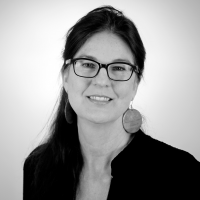The Future of Arctic Research
- Event
- Date
-
- Location
- Potsdam, Germany
- Speaker
On 6 March 2013, the International Arctic Science Committee (IASC), the Embassy of Canada, Ecologic Institute and the Alfred Wegener Institute Helmholtz Centre for Polar and Marine Research hosted a lecture by David Hik, University of Alberta, Canada and IASC President. The session focused on possible future trajectories of national and international research in the Arctic region, drawing on Prof. Hik’s observations of the recent past and International Polar Year initiatives. Following the lecture, Prof. Hik fielded questions from the 35 participants, who represented German research institutes and ministries, foreign embassies and foundations and think tanks.
Prof. Hik’s presentation began with his observation of trends and significant developments within Arctic research in recent years. He noted the global dimension of Arctic research, reflecting the global impacts of Arctic change. At the same time, he underscored the challenge in that much science organization is undertaken at the national and sub-national level... Prof. Hik outlined several recent and current initiatives and some of their legacies, including the International Polar Year, and the 5 Grand Challenges promoted by the International Council for Science.
Looking forward, Prof. Hik discussed the possibility of an ‘International Polar Initiative’ (IPI), a proposed framework for long-term cooperation between different states and stakeholders to better coordinate research and maximize the use of resources in the Arctic. The IPI would be broad in scope, transdisciplinary (including natural and social sciences), involve outreach and inclusion of local communities, link science with policy-making and focus on providing value. Geographic focus would include both polar regions, as well as some alpine regions (the “third pole”). The IPI initiative, which has the support of multiple groups (inter alia the Arctic Council), would potentially roll out in 2017-2018.
Prof. Hik also spoke about the specific context of Arctic research in Canada. He noted that significant funds have been invested into Arctic research in recent years, but highlighted coordination challenges occurring across twenty separate agencies at the federal level. He specifically noted the Government of Canada’s adoption of a Northern Strategy, whose four pillars (protecting the environment; promoting economic and social development; exercising sovereignty; and improving and devolving governance) are all underpinned by the need for improved science and technology. Other specific Canadian initiatives mentioned by Prof Hik included the Canadian Polar Commission, the Canadian High Arctic Research Station, and Arctic Research Infrastructure Fund.
Prof. Hik also spoke to Canada’s upcoming term as Chair of the Arctic Council. The Canadian government has identified three priority areas: responsible Arctic resource development, safe Arctic shipping and sustainable circumpolar communities. Though these priorities have not been fully fleshed out, Prof. Hik indicated that there may be scope for Arctic research cooperation on issues such as: oil and gas, fisheries (including co-management in offshore waters), climate change (including observation, data, and modeling), energy sustainability, human health and well-being, and international research partnerships.
The ensuing discussion amongst participants covered an array of topics including: prospects and initiatives for data dissemination across states, the challenges of coordinating research effectively within the short time spans of Arctic Council chairs, the mainstreaming of indigenous and local perspectives, and the use of virtual funding pools (similar to the Belmont Forum International Opportunities Fund) as a model for the potential IPI.
Opening words to the session were given by Dr. Volker Rachold, IASC Executive Secretary, Agnes Kolodziej, Embassy of Canada, Dr. Grit Martinez, Ecologic Institute and Prof. Bernhard Diekmann, Alfred Wegener Institute. Following the lecture, the Embassy of Canada , hosted a small networking reception.



